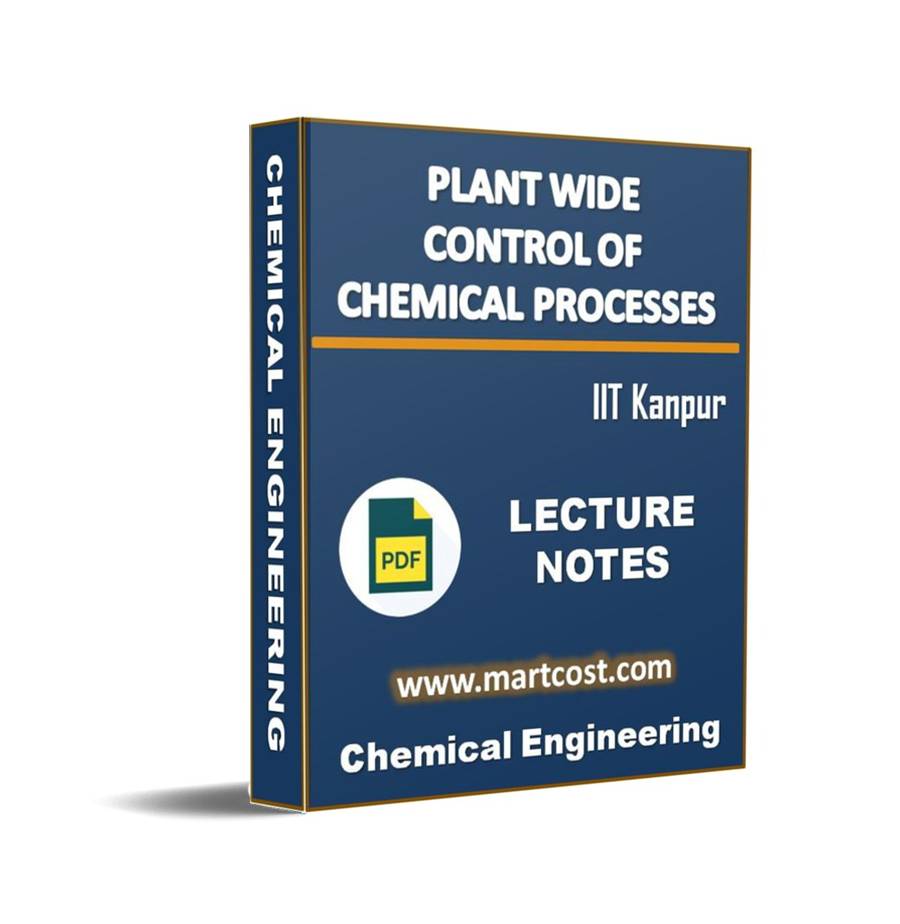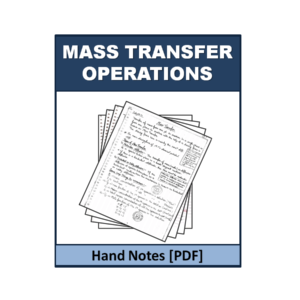Description
Name of Notes : – Plant wide Control of Chemical Processes Lecture Note
Introduction
Chemical processes are designed and operated for manufacturing value added chemicals, the value addition providing the economic incentive for the existence of the process. The fiercely competitive business environment constantly drives research and innovation for significantly improving existing process technologies and for developing new technologies to satisfy man’s ever growing needs. On the operation side, the processes are operated to meet key production objectives that include process safety, product specifications (production rate and quality) and environmental regulations. These key production objectives must be satisfied even as the process is subjected to disturbances such as changes in the fresh feed composition, variation in the ambient temperature, equipment fouling, sensor noise / bias etc. In other words, the process operation must ensure proper management of the process variability so that the key production objectives are met even in the presence of the process variability. This naturally leads to the idea of proper management of process variability, the task accomplished by a well designed automatic process control system. Consider the heat exchanger in Figure 0.1.
Steam is used to heat a process stream to a certain temperature. Due to variations in the process stream flow rate and inlet temperature, the stream outlet temperature varies over a large range. From the process operation perspective, this is unacceptable since the large variation in the process stream temperature disturbs the downstream unit (e.g.. a reactor). The installation of a temperature controller that manipulates the steam flow rate to hold the outlet stream temperature constant mitigates this problem to a very large extent. This is illustrated in the outlet stream temperature and steam flow rate profiles in Figure 0.2. For open loop operation (no temperature control), the temperature varies over a large range while the steam flow rate remains constant. On the other hand, for closed loop operation (with temperature control), the variation in the outlet stream temperature is significantly lower with the steam flow rate showing large variability.
The temperature controller thus transforms the variability in the outlet stream temperature to the steam flow rate. This simple example illustrates the action of a control loop as an agent for transformation of process variability.
Modules / Lectures
- Introduction
- Essential process control basics
- Control of common unit operations
- Issues in plant wide control system design
- Economic plant wide control design procedure and case studies
- Comprehensive case study






Reviews
There are no reviews yet